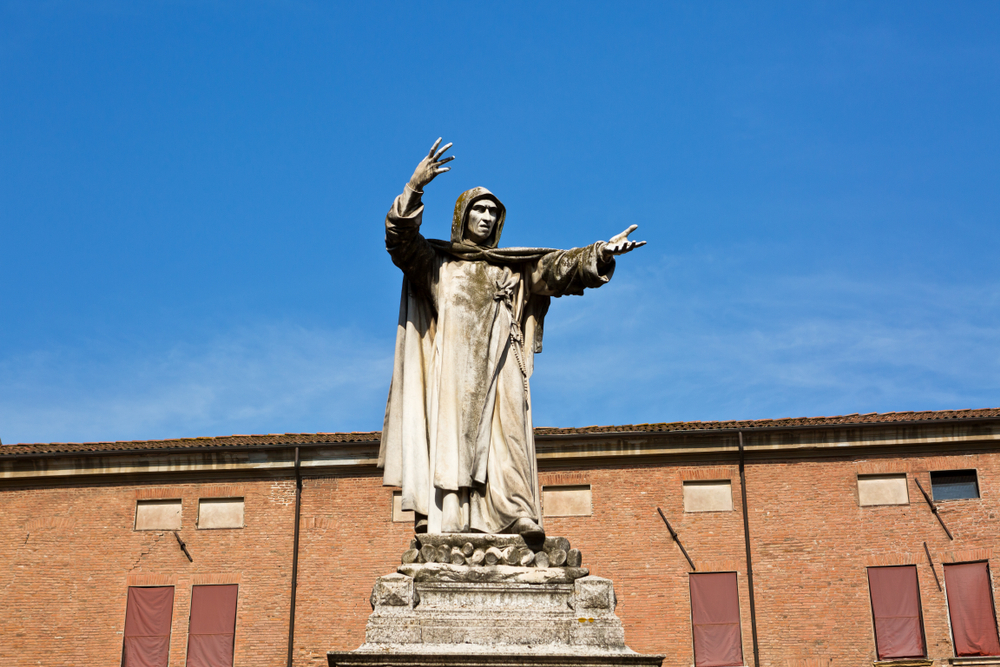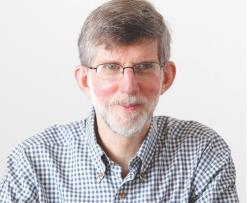Happy centennial, Johan Huizinga! He wrote his famous history book, The Waning of the Middle Ages, in 1919, but an English translation came out in 1924 and changed the way many thought about writing history. I first read it as a college freshman 55 years ago. It led me to major in American Studies, at that time a way of breaking down disciplinary barriers and studying history, literature, media, and more. My goal was to see what made the United States a ticking time bomb.
Huizinga’s sense of Europe in 1919 seemed relevant to America in 1969: “A general feeling of impending calamity. … Perpetual danger prevails everywhere.” A few bombs made by the radical Weathermen terror group did go off that year and in 1970, but as war protests and urban rioting declined, the U.S. gained an extended warranty. Now many wonder whether the jalopy needs repairs.
Huizinga, who grew up in a Christian family in northern Holland, died in 1945 at age 73 under German house arrest. When I turned 73 last year, I reread Waning and saw what the autumn of medieval European life, now six centuries gone, has in common with today’s Republican and Democratic embrace of the politics of vengeance, based in what Huizinga calls “covetousness and mortal hatred, pride and cruelty.”
It should not surprise us that the 2024 election has a former president and a current one voicing the “vehement passion” that “possesses princes and peoples alike” within the “dramatic motive of princely vengeance.” To quote 15th century poet Georges Chastellain, a key Huizinga source, “Princes are men, and their affairs are high and perilous, and their natures are subject to many passions, such as hatred and envy. Their hearts are veritable dwelling-places of these, because of their pride in reigning.”
I like the four uses of “their,” because that absolves from responsibility me and millions of subjects, but “we the people” are also at fault. Have we recently aimed, in light of the preamble to the U.S. Constitution, “to form a more perfect Union, establish Justice, [and] insure domestic Tranquility”? Or have we settled for disunion and injustice, and preferred entertainment to tranquility? Have we thought, “It’s the economy, stupid,” or have we recognized what Huizinga observed a century ago: “The desire to discover economic causes is to some degree a craze with us, and sometimes leads us to forget a much simpler psychological explanation of the facts.”
Huizinga’s simpler explanation emphasizes “the spirit of revenge” that is evident on the left but is more explicit in every Donald Trump speech: “Revenge was … the cardinal point of policy,” with the populace “clamouring for vengeance. … No other political motive could be better understood by the people than the primitive motives of hatred and vengeance.” Huizinga a century ago saw how political parties were “polarized” and “people followed their lord or their party,… Reparation and retribution have to be extreme, and assume the character of revenge.”
In college I admired Huizinga’s movement away from suite-level economic or intellectual history and toward street-level culture. For example:
The specific forms of the thought of an epoch should not only be studied as they reveal themselves in theological and philosophic speculations … but also as they appear in practical wisdom and everyday life. We may even say that the true character of the spirit of an age is better revealed in its mode of regarding and expressing trivial and commonplace things than in the high manifestations of philosophy.
The Waning of the Middle Ages shows how European common folk perceived leaders in government, the economy, and religion. Regarding rulers: when young “Charles the Bold” (good public relations naming) learned he had lost all his money, he told all his followers that they were free to leave him, but “with one accord they shouted, ‘We all, my lord, will live and die with thee.’” Regarding the wealthy, Huizinga records the frequent “hatred of rich people … [and] no end to the complaints about the fate of the peasants, plundered, squeezed, maltreated by gangs of enemies or friends, robbed of their cattle, driven from their homes.”
Church and state were not then opposed, nor were religious passion and strange sexual passion. Huizinga notes that “among the princes and the lords of the fifteenth century, more than one presents the type of an almost inconceivable mixture of devotion and debauchery. Louis of Orléans, an insane lover of luxury and pleasure, addicted even to the sin of necromancy,” also had his cell in a monastic dormitory, where he underwent “the privations and duties of monastic life, rising at midnight and sometimes hearing five or six masses a day.”
In other words, the sordid tales that are roiling the Southern Baptist Convention and other denominations are nothing new. The leader with the public relations sense to be called “Philip the Good” also showed “the coexistence in one person of devotion and worldliness.” Known for his illegitimate children, “his extravagant feasts, his grasping policy, and a pride not less violent than his temper,” Philip was also “strictly devout. He was in the habit of remaining in his oratory for a long time after mass, and living on bread and water four days a week, as well as on all the vigils of Our Lady and the apostles.”
Huizinga offers other examples of ostentatious piety. Charles of Blois “resolved to undertake a pilgrimage, barefooted, in the snow, from La Roche-Derrien … to the shrine of Saint Yves at Tréguier. The people, hearing this, covered the road with straw and blankets, but the count made a detour and hurt his feet, so that for weeks he was unable to walk.” Charles was eventually canonized a saint.
Huizinga concludes that “the general aspect presented by religious life in France towards the end of the Middle Ages is that of a very mechanical and frequently very lax practice, chequered by spasmodic effusions of ardent piety.” Spasms also had political influence: “The custom of princes, in the fifteenth century, frequently to seek counsel in political matters from ecstatic preachers and great visionaries, maintained a kind of religious tension in state affairs which at any moment might manifest itself in decisions of a totally unexpected character.”
Ecstatic preachers were useful when they would concentrate on retribution for what opponents of their rulers had done: “Sin, to violent and impulsive spirits, was only too frequently another name for what their enemies did.” The frequent result of such one-sidedness was “an avowed contempt of the clergy, a contempt seen as an undercurrent throughout the Middle Ages, side by side with the very great respect shown for the sanctity of the sacerdotal office. … The people never wearied of hearing the vices of the clergy arraigned.”
Respect alongside contempt, piety alongside hedonism, itinerant preachers alongside troubadours, Hallmark dramas about courtly love alongside shamelessness in sexual relations: these all combine in our modern age as well. That’s one reason the neo-medieval Game of Thrones attracted a record HBO viewership and gained critical success as it combined A-list artistry and R-rated nudity and violence. Now medievalism appeals both to gamers (from Dungeons and Dragons onward) and to those who go on dates or schedule birthday parties at Medieval Times.
In this political year, we can watch our warring dukes and princes jousting amid, to quote Huizinga one last time,
the mass of obscenities, equivocal sayings and lascivious symbols which we meet in the civilization of the Middle Ages. They were the remains of mysteries that had degenerated into games and amusements. Evidently the people of that epoch did not feel that, in taking pleasure in them, they were infringing the prescriptions of the courtly code. They felt themselves on different soil where courtesy was not current.

